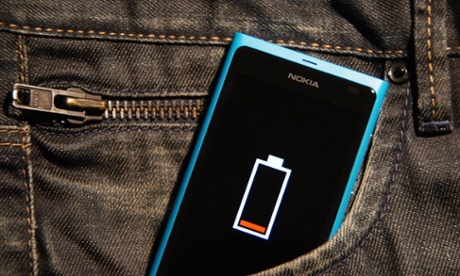
Dyson is investing $15m in a new type of battery that promises to double smartphone battery life and allow electric cars to drive over 600 miles per charge.
The British vacuum company was alerted to the University of Michigan spin-off called Sakti3, which has developed next generation solid-state technology that can store twice as much energy as traditional rechargeable batteries.
As part of the investment, Dyson has entered into a joint development agreement to commercialise Sakti3’s solid-state battery technology. The new batteries promise to store twice as much energy as today’s liquid-based lithium batteries, that are used in everything from smartphones and tablets to cars, robots, and renewable energy sources such as solar panels and wind turbines.
“Sakti3 has achieved leaps in performance, which current battery technology simply can’t,” said company founder James Dyson. “It’s these fundamental technologies – batteries, motors – that allow machines to work properly.”
Battery technology is one of the major limiting factors of portable or cordless electronic products today. While surrounding computer technologies have progressed at a staggering rate, batteries haven’t kept up, leading to user frustration and limits on what can be done.
The lithium-ion technologies used in today’s best batteries have barely progressed since their introduction in 1991 by Sony. There has been improvement in longevity and charging times, but not a great deal in terms of the amount of energy that batteries store.
Mobile electronics have been forced to choose: either be heavier and thicker, or else suffer from poor battery life, which is one of the reasons products like the iPhone rarely last longer than a day on a single charge.
Solids not liquids
Most batteries rely on a liquid mixture of reactive compounds, which store energy from the mains and release it when required through chemical reactions within the cell in the form of electricity.
Sakti3’s solid-state technology uses solid lithium electrodes instead of a liquid mix of chemicals, which doubles the amount of energy that can be stored within a battery.
The eight-year-old company claims its solid-state batteries can store over 1,000 watt hours per litre, which is almost double the best traditional lithium-ion batteries available today with an energy density of up to 620 watts per hour per litre. That increased energy density could effectively double the battery life of mobile electronics, extend the range of electric vehicles and lead to thinner and lighter technology.
The batteries also promise to be cheaper to manufacture, longer lasting and be more environmentally friendly than current lithium-ion batteries. Solid-state batteries also remove some of the safety issues around the explosive nature of liquid batteries.
Other battery technologies in development, such as sulphur-based batteries, have been held back by safety issues. The chemical reactions used to generate the electricity can be violent and corrosive, meaning that they need to be carefully contained to avoid leaks and the reaction releasing the electricity must be kept stable to avoid overheating and potentially explosive consequences.
As most batteries are used in close proximity to the body, such as a smartphone kept in a pocket, tough safety regulations are in place.
Ann Marie Sastry, founder and chief executive of Sakti3, said that the agreement with Dyson will allow the company to bring its technology to the mass market.
“There is a great deal of knowledge and passion on both sides, and Dyson’s engineering team has the capability and the track record to scale up new ideas and make them a commercial reality,” she said.
The investment from Dyson guarantees that the new battery technology will appear first in Dyson products, including new versions of its cordless machines and robotic vacuum cleaners. But the applications for the technology go far beyond cleaning products.
Additional investors in Sakti3 include Khosla Ventures, General Motors and others.
One of the major factors holding back electric cars is so-called “range anxiety”. The best electric cars can only manage around 300 miles on battery power before requiring recharging, which can take over an hour even on the fastest chargers. Batteries with twice the capacity could help alleviate such range issues and make electric vehicles a viable alternative to fossil fuel-powered cars.
Electric car company Tesla, which has also been investing heavily in battery technology, recently announced the launch of a home battery pack. The batteries will be used to store energy generated by solar panels and other renewable sources powering homes overnight and helping reduce electrical costs and carbon footprints.
What issues can solid-state batteries solve?
- Smartphones: solid-state batteries could be made thinner, lighter and safer, while storing twice as much energy effectively, and doubling smartphone battery life
- Cars: Satki3’s batteries could solve range anxiety in electric cars doubling the current maximum of 300 miles per charge, meaning a car could drive from London to Aberdeen without stopping
- Renewable energy in the home: high-density long-life batteries could be charged by solar panels during the day, ready to power a household through the night or when the Sun isn’t shining

